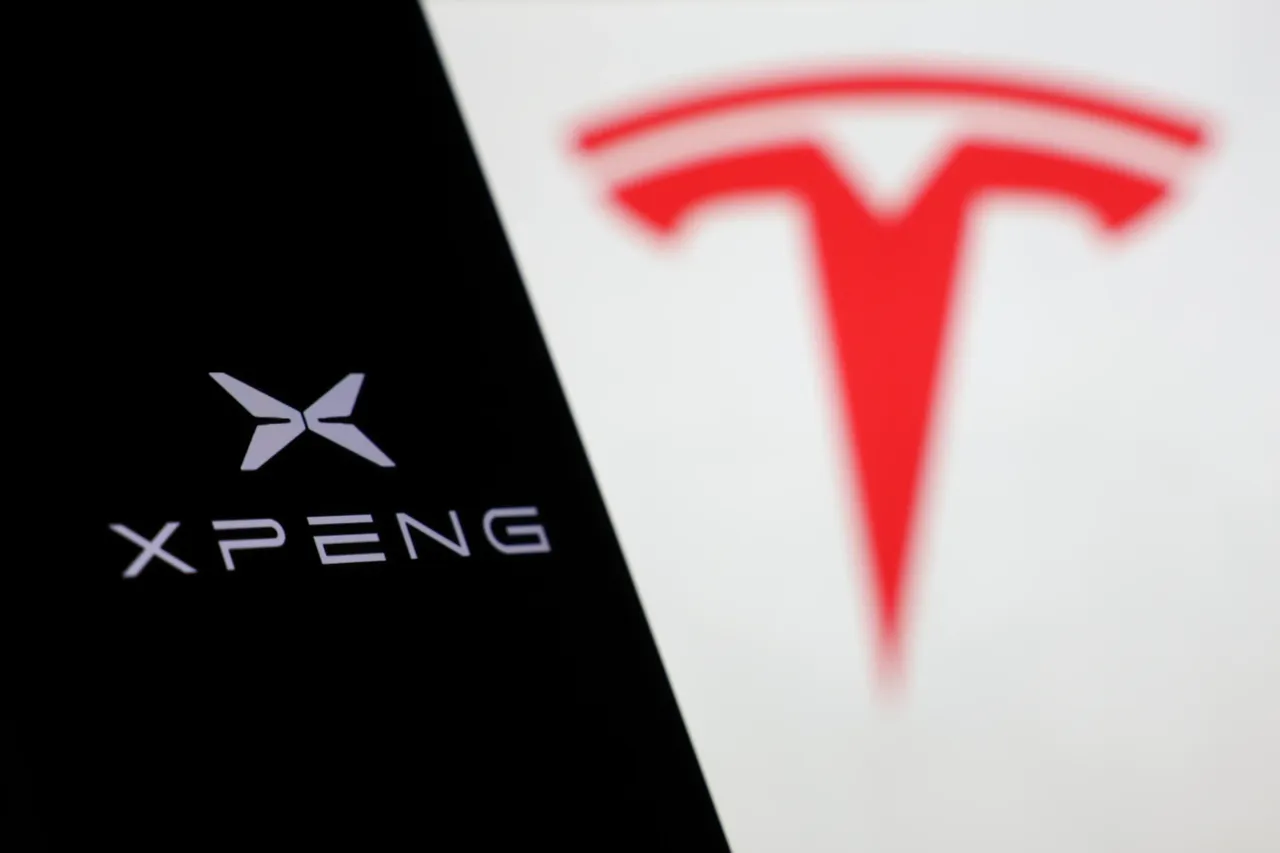Advertisement|Remove ads.
Xpeng Fires Up Tesla Rivalry With 2026 Robotaxi Lineup Reveal As China’s EV Sector Faces Mounting Heat

- Xpeng previewed its 2026 robotaxi lineup ahead of AI Day, showcasing advanced AI-driven features built on its in-house Turing chip and Canghai platform, capable of delivering Level 4 autonomy.
- The Chinese automaker’s move signals an aggressive challenge to Tesla’s self-driving roadmap, as both companies race toward commercial deployment of robotaxi fleets.
- The announcement comes amid growing scrutiny of China’s EV industry following high-profile fire incidents and new smart-driving regulations.
Chinese EV maker Xpeng announced at its 2025 AI Day that it will launch three robotaxi models in 2026, deepening its push into autonomous mobility and positioning itself as a key competitor to Tesla in the global self-driving race.
The reveal comes as China’s EV industry faces mounting scrutiny after a series of vehicle fires and tightening rules on smart-driving systems, pointing to developments analysts say could ultimately benefit established players like Xpeng.
Robotaxi Pivot Announced At AI Day
Xpeng shared new footage on Weibo on Tuesday showing its next-generation robotaxi based on the X9 multi-purpose vehicle (MPV), part of a fleet of three models it plans to launch in 2026. The company described its robotaxi as a companion that understands communication, according to a CnEVPost report.
The preview video showed the robotaxi performing multiple tasks and engaging with pedestrians via dual displays mounted behind the sun visors, which display greetings, charging information, and trip details. Xpeng said the models will use its in-house Turing smart-driving chip and Canghai AI platform, designed to deliver Level 4 autonomous driving with up to 3,000 TOPS of computing power.
The company’s earlier G9 SUV received public-road robotaxi testing approval in Guangzhou in 2022.
A Tesla Rival Emerges
The announcement underscores Xpeng’s growing ambition to compete with Tesla’s robotaxi program. Tesla recently showcased its Cybercab at a Shanghai auto expo and does not currently have permits to operate its self-driving taxis in China. But CEO Elon Musk recently told investors the company expects to begin operating driverless robotaxis in parts of Austin by the end of 2025, expanding to 8-10 U.S. metro areas the following year. Musk emphasized Tesla would proceed “very cautiously” to ensure safety in new markets.
Xpeng’s AI Day unveiling positions the Chinese automaker as one of the few global players aiming for commercial Level 4 autonomy within a comparable timeframe, intensifying competition between Silicon Valley and Shenzhen in advanced mobility technology.
China’s EV Market Under Pressure
Xpeng’s announcement comes against a backdrop of heightened safety concerns and regulatory tightening in China’s EV sector. Last month, a Li Mega MPV caught fire in Shanghai, marking the second major EV fire in October following a fatal Xiaomi SU7 incident in Chengdu.
Analysts Ken Lee and Bella Lu of UOB Kay Hian wrote in a recent note that Beijing’s stricter smart-driving access rules and new limits on technology transfers to Europe are adding geopolitical and operational strain to China’s automakers. They said the tighter framework is likely to raise safety standards and global confidence in Chinese brands, benefiting BYD, Geely, and Xpeng, while posing challenges for smaller firms such as Li Auto.
Stocktwits Users Show Bullish Mood
On Stocktwits, retail sentiment for Xpeng was ‘bullish’ amid ‘high’ message volume.

Xpeng’s U.S.-listed stock has nearly doubled so far in 2025.
For updates and corrections, email newsroom[at]stocktwits[dot]com.













/filters:format(webp)https://news.stocktwits-cdn.com/large_kevin_o_leary_OG_jpg_2789641a97.webp)
/filters:format(webp)https://news.stocktwits-cdn.com/Anushka_Basu_make_me_smile_in_the_picture_b92832aa_af59_4141_aacc_4180d2241ba8_1_2_png_1086e0ed8c.webp)
/filters:format(webp)https://news.stocktwits-cdn.com/large_Getty_Images_2200882557_jpg_53f3e467bc.webp)
/filters:format(webp)https://news.stocktwits-cdn.com/large_Getty_Images_2260269284_jpg_cf42b9b8c3.webp)
/filters:format(webp)https://news.stocktwits-cdn.com/large_Patrick_Witt_d5f3eaa4da.webp)
/filters:format(webp)https://news.stocktwits-cdn.com/large_Brian_Armstrong_Coinbase_60d65adb96.webp)
/filters:format(webp)https://news.stocktwits-cdn.com/large_immunitybio_stock_jpg_9eab8bde17.webp)
/filters:format(webp)https://st-everywhere-cms-prod.s3.us-east-1.amazonaws.com/unnamed_jpg_9dff551b50.webp)